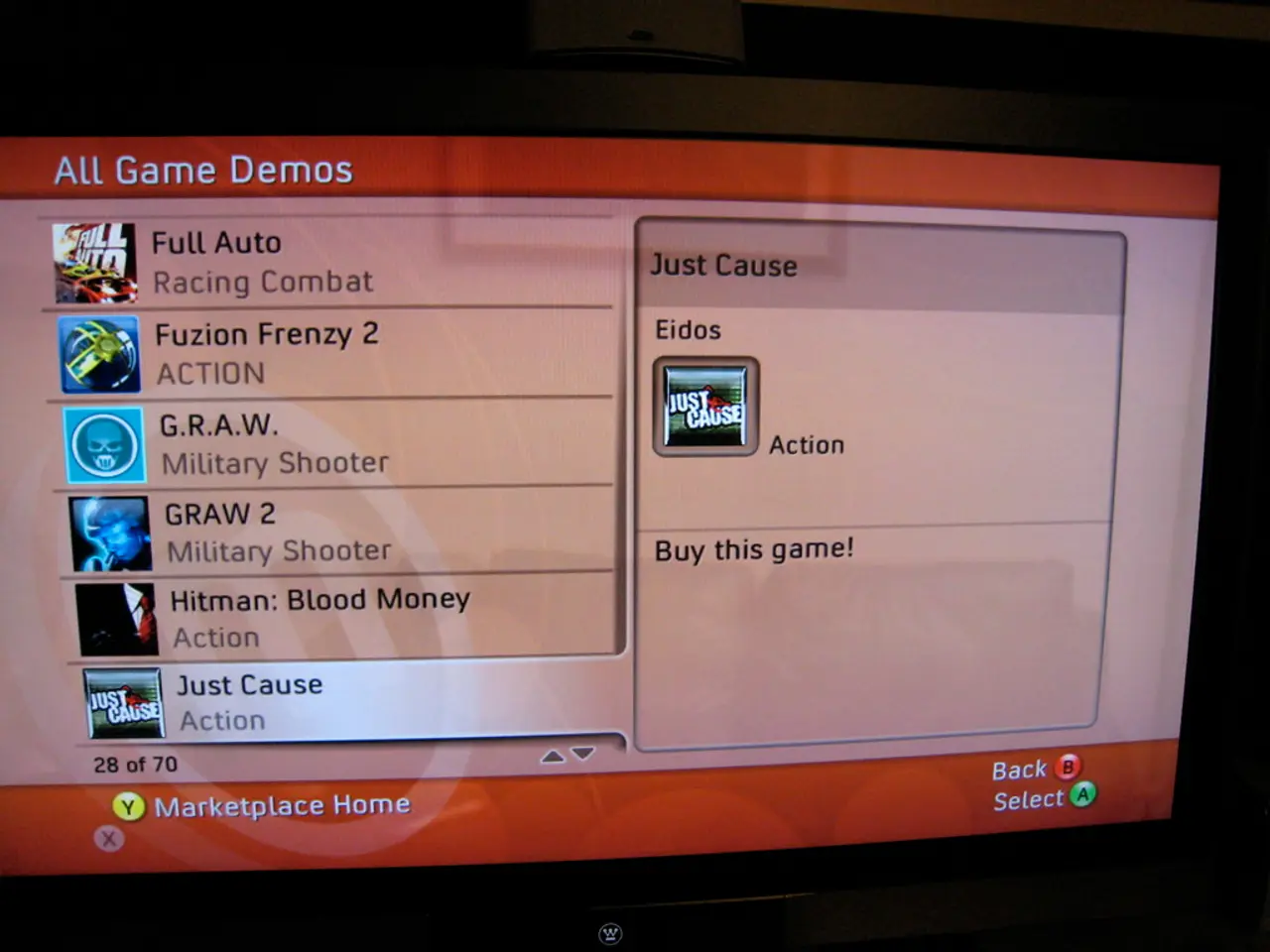List of Brands Under Electronic Arts' Control: An Overview of Electronic Arts' Extensive Business Holdings
Electronic Arts (EA), a leading video game publisher founded in 1982, has been an influential player in the gaming industry for decades. With a vast portfolio that includes sports franchises like Madden NFL and FIFA, fantasy games such as Dragon Age and Mass Effect, and smash-hits like Need for Speed and Battlefield, EA commands respect in the gaming world.
One of EA's key strategies for growth has been strategic acquisitions of various gaming studios over the years. These acquisitions, such as BioWare, DICE, PopCap Games, Criterion Games, and Respawn Entertainment, have brought unique skills and specializations to EA's offerings, solidifying its presence on both console and mobile platforms.
BioWare, known for producing hit RPGs like the Dragon Age and Mass Effect series, joined EA in 2007. Since then, BioWare has continued to have commercial success and critical acclaim with games like Mass Effect and Dragon Age. DICE, responsible for the Battlefield series, was acquired in 2006. Under EA's leadership, DICE has launched games like Battlefield: Bad Company, Battlefield 3, and Star Wars Battlefront.
The incorporation of acquired assets and talent into other projects helps mitigate risks associated with unsuccessful ventures. For instance, DICE's Frostbite Engine, created by DICE, now powers many flagship titles across various studios within EA. Similarly, Ghost Games, primarily took charge of the Need for Speed franchise after being acquired by EA in 2012. The studio expanded significantly under EA's guidance, growing from a handful of developers to over 100 employees by 2020.
PopCap Games, known for creating casual games like Bejeweled and Plants vs Zombies, was acquired by EA in 2011. Post-acquisition, PopCap laid off around fifty employees as part of a restructuring plan. However, PopCap's games have continued to find success under EA's wing, with titles like Plants vs Zombies: Garden Warfare launching on multiple platforms by mid-2014.
EA's focus on acquiring companies that can add value to their existing product lineup has paid off. Games like FIFA, Madden NFL, and Star Wars Jedi: Fallen Order have become staples in their respective genres, underlining the effectiveness of EA's strategy. However, critics argue that EA's focus on profitability sometimes leads to rushed game development or excessive monetization strategies such as loot boxes.
Despite these criticisms, EA's acquisitions have contributed to a diverse game portfolio, with games like Battlefield 3 selling five million copies within its first week and Star Wars Battlefront becoming an instant hit. More recently, EA expanded its sports gaming segment by acquiring Phenomic Game Development in 2006 and secured innovative technology and successful IP through the acquisition of Respawn Entertainment in 2017.
In early 2020, EA decided to rebrand Ghost Games back to Criterion, another one of its subsidiaries known for their expertise in racing games. This move signifies EA's commitment to leveraging the strengths of its acquired studios to shape the future of gaming.
In conclusion, Electronic Arts' strategic acquisitions have played a significant role in shaping the gaming landscape. Each acquisition, from BioWare to PopCap Games, has brought unique skills and specializations that continue to shape EA's future offerings. As EA continues to innovate and acquire talent, it remains a force to be reckoned with in the gaming industry.
Read also:
- Antitussives: List of Examples, Functions, Adverse Reactions, and Additional Details
- Asthma Diagnosis: Exploring FeNO Tests and Related Treatments
- Discourse at Nufam 2025: Truck Drivers Utilize Discussion Areas, Debate and Initiate Actions
- Exploring Differences in Rooftop Solar Systems in the Building Industry: Key Distinctions and Recommendations








